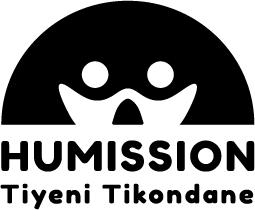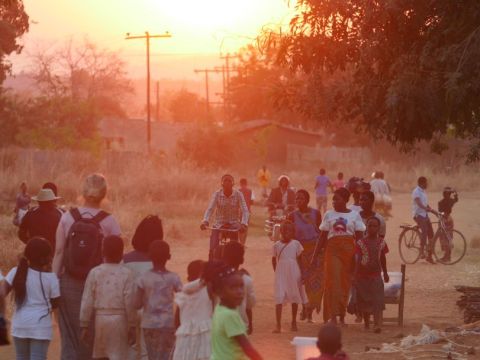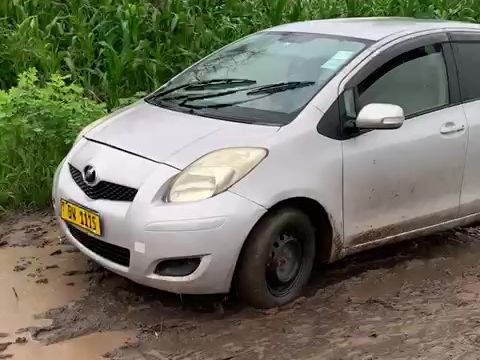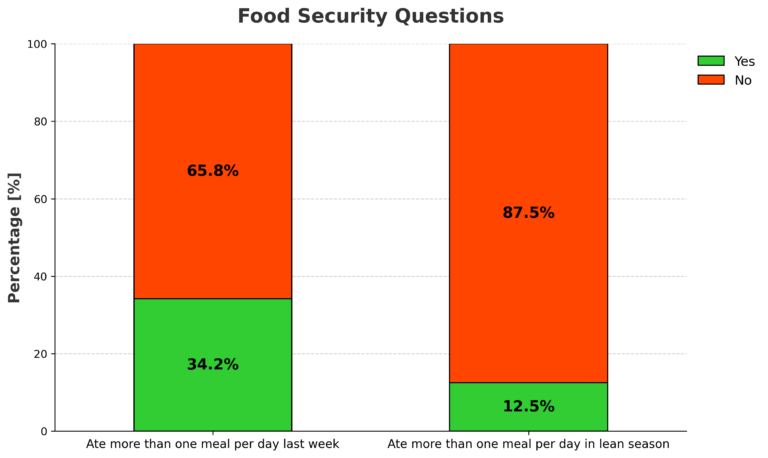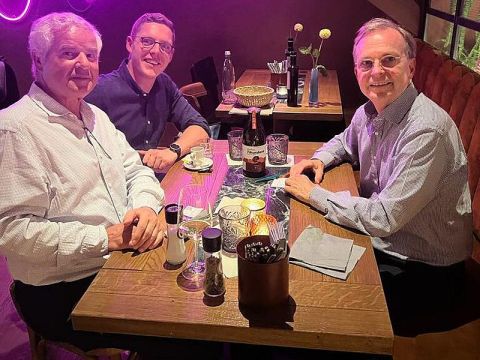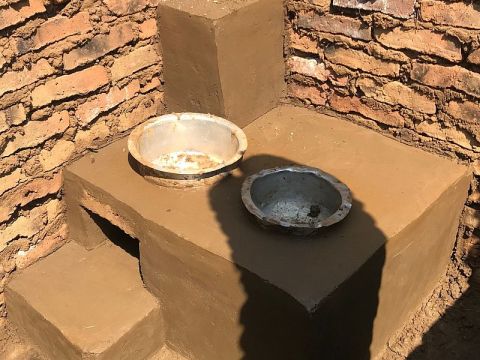Dezember 2022
Seitdem wir das erste Mal 2018 für unsere Projektarbeit nach Malawi gekommen sind, hat sich viel verändert – im Land aber auch für Humission.
Mittlerweile haben wir knapp 700 energiesparende Kochöfen in verschiedenen Dörfern rund um Benga gebaut, etwa 10 Studierenden Ihre Ausbildung ermöglicht, einen lokalen Direktor festangestellt, ein eigenes kleines Stück Land zur Erprobung nachhaltiger Methoden in der Landwirtschaft gekauft und in einem Pilotprojekt ca. 30 Systeme zur Herstellung nachhaltiger Biokohle finanziert. Zeit einmal inne zu halten und sich zur überlegen, wie es weiter gehen soll.
Da einige der ersten Öfen durch die Regenzeiten in Mitleidenschaft gezogen wurden, haben wir dieses Jahr während unseres Aufenthalts damit begonnen, etwa 60 von ihnen zu renovieren. Überwiegend organisiert von unserem lokalen Direktor Pascally Tambala, der zu
einer der wichtigsten Säulen unserer Arbeit vor Ort geworden ist. Gleichzeitig haben wir intensiv an der Planung eines großen Global Grant Projekts in Zusammenarbeit mit zwei Rotary Clubs aus Aachen und Lilongwe gearbeitet, um in den nächsten zwei Jahren das Biokohle- und Landwirtschaftsprojekt in größerem Maßstab umzusetzen. Hierzu haben wir uns mit potentiellen Begünstigten getroffen, mit Menschen gesprochen, die bereits an den Systemen arbeiten, Vertreter des Rotary Clubs in Lilongwe von unserer Idee überzeugt und die Regierung Malawis sowohl auf Distrikt- als auch Bundesebene ins Boot geholt. Viele produktive Gespräche, die uns und unsere Idee bekannt machen und weiter voranbringen können.
Mit der Erweiterung der Projektaktivitäten, muss auch eine Ausweitung unserer finanziellen Basis einhergehen. Vor allem frei verfügbares Geld, das für die Löhne unserer Arbeiter*innen vor Ort, die Instandhaltung bzw. den Neukauf eines für unsere Arbeit dringend benötigten Autos oder die Weiterentwicklung unseres Grundstücks dienen kann, ist immer wichtiger. Hierfür haben wir erstmals in größerem Umfang selber Kaffee aus dem Norden Malawis eingekauft, um diesen in Deutschland an Röstereien und über unsere eigene Marke „Tikondane“ verkaufen zu können.
Während vor allem in der Hauptstadt Lilongwe die Straßen immer breiter und Teile der Infrastruktur und Verwaltung immer moderner werden, merkt man auch auf dem Land die Wirkung der verschiedenen Entwicklungsprojekte diverser Akteure. Mehr Menschen können in Wellblech- statt Strohdächer investieren, um sich besser vor dem kommenden Regen zu schützen oder ihre eigene Mobilität durch ein Motorrad stärken. Andererseits merkt man auch in Malawi die Auswirkungen des russischen Angriffskriegs auf die Ukraine und die daraus resultierenden wirtschaftlichen Verwerfung. Die Inflation ist hoch und wichtige Produkte wie Benzin, Medikamente oder Dünger werden dieses Jahr aufgrund fehlender Devisen extrem knapp sein. Während man für eine Tankfüllung auch gerne mal einen Tag an der Tankstelle steht, wird vor allem die Knappheit an Dünger die Landbevölkerung hart treffen. Wir helfen hier mit Lohnvorauszahlungen und einer höheren Produktion von Terra Preta bzw. der Ausbildung von Subsistenzfarmern, diese herzustellen um auch ohne Dünger genug ernten zu können und die eigene Familie zu ernähren. Bei allem Fortschritt den es gibt, darf man niemanden vergessen. Gerade die Ärmsten der Armen in diesem Teil der Erde werden in den kommenden Monaten besonders leiden und verdienen deshalb international besondere Aufmerksamkeit. Wir hoffen, hier einen kleinen Beitrag leisten zu können.
Valentin Amian, 1. Vorsitzender Humssion e.V.
Since we first came to Malawi in 2018 for our project work, a lot has changed in the much has changed – in the country but also for Humission.
In the meantime, we have built nearly 700 energy-saving cooking stoves in various villages around villages around Benga, provided education for about 10 students, hired a local director, and a local director, bought a small piece of land to test sustainable methods in agriculture and agriculture, and financed a pilot project with about 30 systems for the production of sustainable biochar. Biochar in a pilot project. It’s time to pause and think about what’s next should be to do.
Since some of the first stoves were affected by the rainy seasons, we have
we started this year during our stay to renovate about 60 of them renovated. Mostly organized by our local director Pascally Tambala, who has become one of the main pillars of our work on the ground. At the same time we have worked intensively on the planning of a large global grant project in cooperation with two Rotary Clubs from Aachen and Lilongwe, in order to support in the next two years the biochar and agriculture project on a larger scale. For this purpose we have met with potential beneficiaries, talked to people who are already working on the systems, representatives of the systems, convinced representatives of the Rotary Club in Lilongwe of our idea and brought the Malawi government on board at both the district and federal levels. Many productive conversations that can make us and our idea known and move us forward.
With the expansion of the project activities, must also be an expansion of our financial basis must go hand in hand. Above all, freely available money, which can be used for the wages of our local workers maintenance or the purchase of a new car, which is urgently needed for our work, or for the further or the further development of our property is becoming increasingly important.
For this reason, we have for the first time purchased a large amount of coffee from the north of Malawi in order to to sell it in Germany to roasting companies and through our own brand “Tikondane”.
While especially in the capital Lilongwe the streets are getting wider and wider and parts of the infrastructure and administration are becoming more and more modern, the effect of the various development projects
the impact of the various development projects of different actors. More people can thatched roofs to better protect themselves from the coming rains, or to improve their own or strengthen their own mobility by buying a motorcycle. On the other hand the effects of the Russian war of aggression on Ukraine and the resulting economic dislocation.
Inflation is high and important products such as gasoline, medicines, and fertilizers will be in extremely short supply this year foreign currency will be extremely scarce. While people are happy to spend a day at the gas station for a tank of gas the gas station for a tank of gas, the shortage of fertilizer in particular will hit the rural population hard.
We are helping here with advance wage payments and increased production of Terra preta and the training of subsistence farmers to produce it in order to be able to harvest enough and to feed their own families. With all the progress that there is, one must not forget anyone. Especially the poorest of the poor in this part of the world will suffer particularly in the coming months and therefore deserve special nternational special attention. We hope to be able to make a small contribution here.
Valentin Amian, 1st Chairman Humssion e.V.
Benga, Malawi, December 07, 2022
